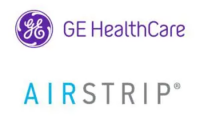-
GE HealthCare, AirStrip partner on patient monitoring, cardiac data visualization
- Source: drugdu
- 102
- December 6, 2023
-
Lilly’s Jaypirca blazes leukemia trail with FDA nod, fast confirmatory trial filing
- Source: drugdu
- 99
- December 6, 2023
-
UK-India research project trialling easy-to-use UTI test to support fight against AMR
- Source: drugdu
- 95
- December 6, 2023
-
Pharma industry groups push initiatives against climate change at COP28
- Source: drugdu
- 100
- December 6, 2023
-
Pfizer Nixes Twice-Daily Oral GLP-1 Candidate After High Rates of Side Effects
- Source: drugdu
- 204
- December 5, 2023
-
AbbVie Buys ImmunoGen in $10B Deal, Gains Access to ADC for Ovarian Cancer
- Source: drugdu
- 122
- December 4, 2023
-
Boehringer Ingelheim and IBM announce AI antibody drug discovery partnership
- Source: drugdu
- 110
- December 4, 2023
-
Boehringer Ingelheim Targets Stroma-Rich Cancers in Potential $509M AI Deal
- Source: drugdu
- 193
- December 1, 2023
-
Intas on import alert as FDA flags data manipulation, management failures in warning letter
- Source: drugdu
- 105
- December 1, 2023
-
Acelyrin claims errors by CRO Fortrea led to late-stage trial downfall
- Source: drugdu
- 245
- November 30, 2023
your submission has already been received.
OK
Subscribe
Please enter a valid Email address!
Submit
The most relevant industry news & insight will be sent to you every two weeks.













